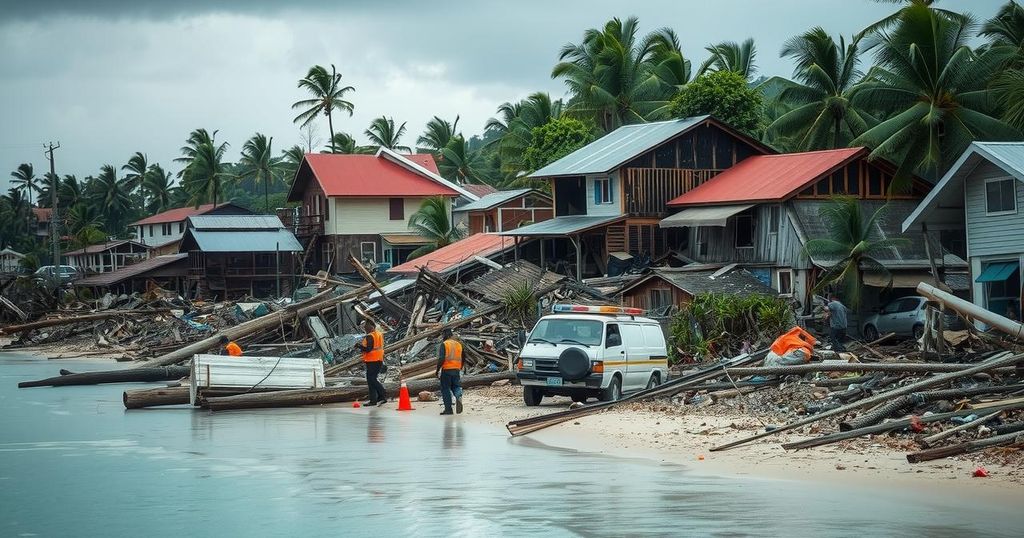Cyclone Chido Devastates Mayotte: Hundreds Feared Dead After Catastrophic Storm
Cyclone Chido wreaked havoc on Mayotte, leading authorities to estimate potential casualties from several hundred to a few thousand. The cyclone reached minimal wind speeds comparable to a Category 4 hurricane, devastating local shantytowns and complicating recovery efforts. Emergency teams are actively engaged in search and rescue amid the destruction.
Authorities in Mayotte, a French territory in the Indian Ocean, are bracing for a catastrophic death toll following the devastating Cyclone Chido, which struck the island over the weekend. The cyclone, classified as equivalent to a Category 4 hurricane, made landfall with wind gusts reaching 226 km/h (140 mph) accompanied by perilous storm surges. Currently, the official death figure stands at 14; however, François-Xavier Bieuville, the territorial prefect, anticipates that the true toll could range from several hundred to possibly a few thousand fatalities as recovery efforts continue amidst challenging conditions. Emergency teams from the mainland and nearby Reunion Island have been deployed to assist in search and rescue operations as the island grapples with widespread destruction, particularly in impoverished shantytowns.
Mayotte is located in the Indian Ocean near the southeast coast of Africa and has a population exceeding 321,000 residents. It is recognized as one of the most economically disadvantaged regions of France, exacerbating the impact of natural disasters such as Cyclone Chido. The community predominantly comprises Muslims, and cultural customs necessitate burial within 24 hours, complicating the assessment of casualties. The island is also embroiled in a significant immigration debate regarding asylum seekers from the Comoros, highlighting its position as an intersection of humanitarian and socio-political issues.
In summary, Cyclone Chido has unleashed unprecedented devastation on Mayotte, likely resulting in a significantly higher death toll than currently reported. The territory, already facing economic challenges, must now navigate the complexities of recovery while addressing cultural practices related to burials and ongoing immigration issues. The international community will be watching closely as rescue operations unfold and the local authorities begin to assess the full extent of the disaster.
Original Source: www.forbes.com




Post Comment